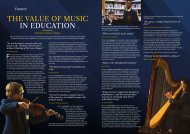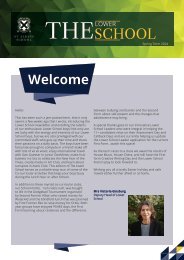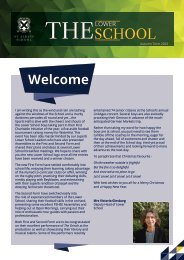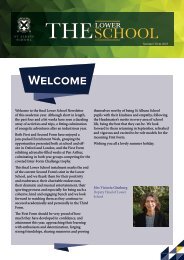You also want an ePaper? Increase the reach of your titles
YUMPU automatically turns print PDFs into web optimized ePapers that Google loves.
78<br />
decision to ban all members of the MSM category<br />
from donating blood despite the existence of the<br />
ELISA test for HIV by 1895. This occurred when,<br />
as a result of AIDS, blood shortages were common<br />
and consequently the blood supply was artificially<br />
constrained when blood was desperately needed.<br />
Combined together, these all present examples of<br />
the direct line from homophobia to harmful policies<br />
that exacerbated the difficulties facing those with<br />
AIDS.<br />
While homophobia and stigma created issues for<br />
those suffering from HIV through religious and<br />
political oversight, it was perhaps the casual, everyday<br />
stigma that caused the most immediate problems.<br />
Though medical professionals played a vital<br />
role in dealing with the epidemic, a number had<br />
adopted society’s wider fear and still in 2014 15%<br />
of gay and bisexual patients with HIV reported<br />
receiving poor treatment by doctors, the percentage<br />
being far larger in the 80s and 90s. As a result, gay<br />
and bisexual men became less likely to be tested<br />
and receive treatment, less aware of whether they<br />
had the virus and whether they were spreading it.<br />
Furthermore, as experiences of homophobia are<br />
shown to increase the likelihood of substance abuse<br />
and more risky sexual behaviour, it is unsurprising<br />
that HIV spread so rapidly through the community.<br />
Compounded upon this, housing discrimination<br />
and workplace discrimination harmed the security<br />
of both members of the LGBTQ+ community and<br />
those suffering from AIDS whilst simultaneously<br />
suffering social ostracization resulting from incorrect<br />
beliefs that HIV could be spread from skin-toskin<br />
contact or through the air. A harrowing example<br />
of how discrimination and HIV intersect is the<br />
fact that even now 14% of transgender women have<br />
HIV. This is partly because discrimination causes<br />
transgender people to face higher rates of homelessness,<br />
unemployment and poverty so many are<br />
forced to engage in sex work, a field where people<br />
become five times more likely to be diagnosed with<br />
HIV. This link between discrimination and vulnerability<br />
to HIV becomes starker when observing what<br />
happens when racism intersects with the previous<br />
issues: 44% of black transgender women have HIV<br />
while gay black men are 16 times more likely to be<br />
infected than gay white men. Barriers arising from<br />
institutionalised racism combine with poverty to<br />
heighten the dangers of homophobia and leave vulnerable<br />
members of the population exposed to HIV.<br />
Facing stigma or indifference from most unaffected<br />
The <strong>Gateway</strong> <strong>Chronicle</strong><br />
by the illness, the LGBTQ+ community was forced<br />
to carry out its own activism. ACT UP became a<br />
central organisation working to end the AIDS epidemic,<br />
and whether it was placing a giant condom<br />
over the house of homophobic senator Jesse Helms<br />
or spreading the ashes of dead loved ones on the<br />
lawn of the White House to protest George Bush’s<br />
inaction, they were involved. Meanwhile, in response<br />
to the ban on MSM donating blood, lesbian<br />
women performed blood drives to help supply blood<br />
to the depleted reserves desperately needed by those<br />
with AIDS. The importance of campaigning in<br />
educating the public, calming panic and accelerating<br />
Members of AIDS activist group ACT UP<br />
hold a banner stating “Silence Equals Death”<br />
and signs of prominent U.S politicians at a<br />
demonstration held on October 11, 1988


















